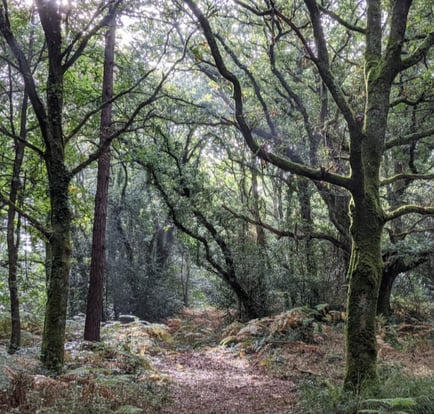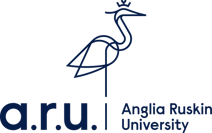Recentring the Human within Nature
Join us for the official launch of the DIALOGUE network, where we will reimagine the role of the citizen and the self within sustainability transitions
30th April 2025
Hosted by Anglia Ruskin University (Cambridge, UK)


Key dates
March 17th 2025 - Submission deadline (Closed)
March 24th 2025 - Notification of outcome
April 30th 2025 - Symposium (all day)
Guildhall School of Music and Drama students - Please use your internal selection process
Cambridge School of Art students - click here for details of the The Sustainability Art and Design Prize
Abstract
We are seeking participants for the inaugural event of the DIALOGUE (Developing Interdisciplinary Active Links and Opportunities for Growth, Understanding, and Engagement) network. Our ‘Recentring the Human within Nature’ symposium invites researchers, practitioners, policymakers, business collectives, community leaders, and artists to reimagine the role of the citizen in sustainability transitions.
This one-day event blends research, artistic expression, and community discussions to provide the foundation for developing collaborative projects. The symposium is structured around three themes, with each theme having a dedicated session for the selected participants to engage with and share knowledge. Presentations will be kept brief to provide space for interactive group discussion. These themes will then be brought together in our final session to allow inter-theme dialogue and debate:
Sustainable Development and Society:
Sharing community-driven approaches to natural resource use and economic innovation
Re-tangling Humans within Nature:
Creating immersive artistic and audiovisual explorations of human-nature relationships
Community-Led Policymaking:
Developing collaborative frameworks for inclusive and grassroots policy development.
Theme 1
Theme 2
Theme 3
Call for Papers, Presentations, Art, and Knowledge
We invite contributions that engage with the symposiums themes and will prioritise work that encourages interdisciplinarity. Some topics of interest can be found here.
This list is non-exhaustive and not prescriptive, we encourage you to apply if you believe your work or research is linked in any way to some or multiple of these suggestions or the overall symposium topic.
We particularly encourage applications, in any form, from: artists, community groups, and policy workers.
Innovative Approaches to Sustainable Resource Use: Exploring novel methodologies and practices for the sustainable management of natural resources, including community-led frameworks, circular economies, and integrated ecological approaches that address economic, social, and environmental dimensions.
Artistic or Creative Methodologies for Understanding Environmental Challenges: Investigating the role of artistic expression, such as visual arts, performance, and digital media, as tools for interpreting, communicating, and addressing complex environmental issues. Emphasis will be placed on approaches that engage diverse audiences and inspire actionable change.
Participatory Frameworks for Inclusive Policymaking: Examining mechanisms for incorporating grassroots, marginalized, and underrepresented voices into policy development. Contributions may focus on co-creation models, deliberative democracy techniques, and frameworks that empower communities to shape the policies affecting them.
The Role of Emotions in Sustainability Transitions: Analysing how emotional dimensions impact individual and collective engagement with sustainability challenges. This includes exploring ways to harness emotions constructively in fostering long-term commitment to sustainable practices.
Strategies for Interdisciplinary Collaboration: Identifying methods and best practices for bridging disciplinary silos, fostering cross-sectoral partnerships, and addressing challenges in interdisciplinary research and practice. Topics may include team dynamics, shared language development, and integrating diverse epistemologies to tackle sustainability issues.
Approaches for Engaging with Communities and Amplifying Their Needs: Developing and evaluating methods for building trust, facilitating dialogue, and effectively representing community voices in research and decision-making processes. This may include case studies or frameworks for participatory action research, community workshops, and localised knowledge-sharing initiatives.
Best Practices for Working with Government and Policy Workers: Exploring strategies for establishing productive relationships with governmental and policy actors to ensure the translation of research insights into actionable policies. Contributions might address barriers to collaboration, effective communication strategies, and the codevelopment of sustainable policies aligned with community priorities.
Submission Guidelines
Academic abstracts should be 300 words maximum, have a title, and up to five keywords.
Submissions from non-academics are welcome in any format. Please use the abstract space, and if needed the additional space at the end of the form.
Submission Deadline: 17th of March 2025 23:59.
Please send us your submission via this form: https://forms.office.com/e/Gny4AYKECL
If you have questions, please reach out to pr479@pgr.aru.ac.uk.
If your submission contains elements beyond text, please send those additional aspects to the above email.
All individuals who want to attend the symposium are required to submit to the open call. This is to allow selection of participants who the committee believe will both contribute to and benefit from the symposium.
A small number of selected participants per theme will be invited to give a brief presentation in the first session of the day, with the remaining majority of the day built around group discussion and shared learning.
Applicants based at the Guildhall School of Music and Drama should apply to the symposium via their internal call for submissions.
Additional information
Opportunities for Collaboration:
Symposium attendees will have the opportunity to collaborate with arts-based students to create visual, auditory, or performance-based works inspired by their research, contributing to the event’s artistic displays.
Evening entertainment:
As part of the symposium all attendees will be invited to attend a specially curated evening of performances, including drag performances, theatrical displays, and eco-expression through movement, all designed to celebrate the fusion of art and sustainability themes.
Reserved Spaces for PhD Researchers and ECRs:
The DIALOGUE network is committed to supporting emerging scholars. Dedicated spaces have been reserved for PhD researchers and Early Career Researchers (ECRs)
Participant Support:
To ensure accessibility, funding is available to cover travel and/or accommodation for a limited number of participants. Priority will be given to PhD researchers and ECRs, alongside other participants demonstrating financial need. This financial support is open to all applicants.
Funding transparency
This symposium is funded by the Sustainable Futures theme at Anglia Ruskin University, with additional support from the Centre for Research into the Organization of Work and Consumption (CROWC), the Global Sustainability Institute (GSI), and the Cambridge School of Art (CSA).
Frequently asked questions
Can I attend without submitting something?
In order to keep the event to a size where group discussion is possible, numbers are being limited and attendance is on an invitation only basis. Therefore, to be invited, you must submit something so we can understand your interests as well as ensure you will gain something from the symposium.
I'm not an academic and am not sure what I should submit, any advice?
We would encourage you to write about your interests, personal or work related, that make you want to participate in the symposium. This does not have to follow any particular style. For policy workers and community groups, this could be current or past projects, as well as your desires or interests regarding future projects. For artists, please also feel free to send us visual or auditory media and use the abstract box as a place to provide a brief description or explanation of the work/your interests.
How much does it cost?
The symposium is entirely free to attend, with lunch and dinner (plus snacks, tea/coffee, and an evening of entertainment) provided thanks to our funders. We also have capacity to support travel costs, accommodation, or other costs you may incur as a participant. Currently we are only capable of providing this to some of our participants, but watch this space as we are waiting on another funding decision.
I'm from outside the UK, can I still apply/attend?
Absolutely, the DIALOGUE network is currently spread out across the UK, North America, and the EU and we welcome applicants from anywhere in the world. We will do our best to help you attend if selected no matter where you are based.
How can I contact you?
Please email any symposium questions to pr479@pgr.aru.ac.uk
Is the venue accessible?
The entire day has been carefully designed from the very beginning around accessibility requirements, however please do reach out if you have any concerns. While every effort has been made, there is always the unfortunate possibility our team have missed something and we will be happy to work with you to ensure you can attend.
Do I have to give a presentation/paper?
No, only a small number of people per theme (1, 2, and 3) will be asked to present their work directly during the first session of the day when we all split off into one of the themes. The aim of the day is to foster group discussion, build project ideas, and build connections between attendees. Throughout the day you will present your work repeatedly, via conversation, group activities, and your interactions instead of a slide show.


